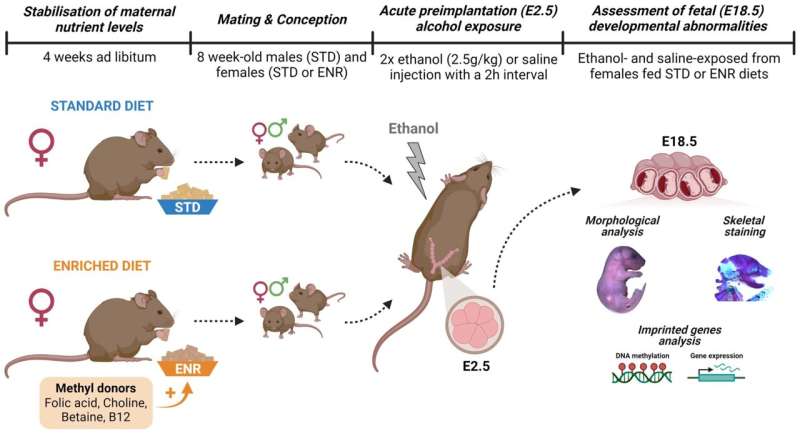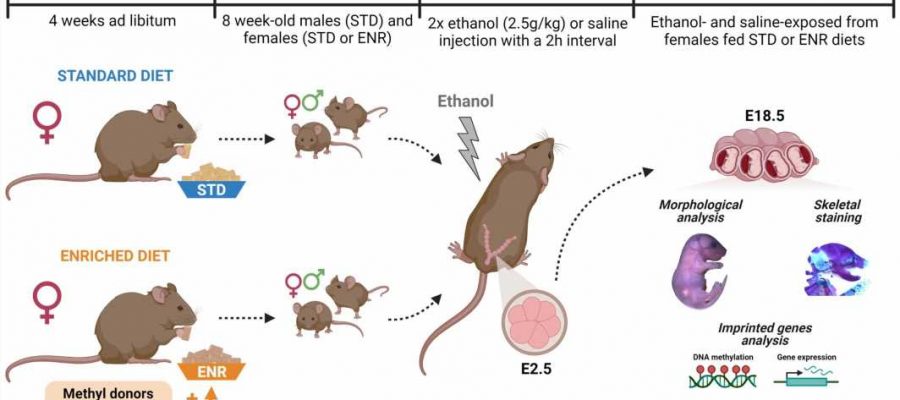
Fetal alcohol exposure at any stage of pregnancy can lead to congenital malformations, as well as cognitive, behavioral, and emotional impairments in offspring. New research conducted in mice and published in The FASEB Journal indicates that even very early embryos exposed to alcohol can experience growth restriction, brain abnormalities, and skeletal delays, but feeding pregnant mothers certain nutrients prior to conception and throughout pregnancy can reduce the incidence and severity of the alcohol-induced defects.
The beneficial effects were seen with a combination of four nutrients—folic acid, choline, betaine, and vitamin B12.
The authors stress that the best way to prevent fetal alcohol spectrum disorders remains to abstain from alcohol use during pregnancy. However, the results of their study suggest that supplementing the mother’s diet with certain nutrients before and during pregnancy could be an effective preventative measure to protect embryos from accidental early fetal alcohol exposure, especially in cases where the mother has nutritional deficiencies.
“These results will lead to future mechanistic studies investigating the underlying biological mechanisms by which certain nutrients protect early embryos from alcohol-induced defects that could deepen our understanding of fetal development pathways and lead to novel interventions for the prevention or treatment of fetal alcohol spectrum disorders,” said corresponding author Serge McGraw, Ph.D., of the University of Montréal.
More information:
Mélanie Breton‐Larrivée et al, Mitigating the detrimental developmental impact of early fetal alcohol exposure using a maternal methyl donor‐enriched diet, The FASEB Journal (2023). DOI: 10.1096/fj.202201564R
Journal information:
FASEB Journal
Source: Read Full Article
